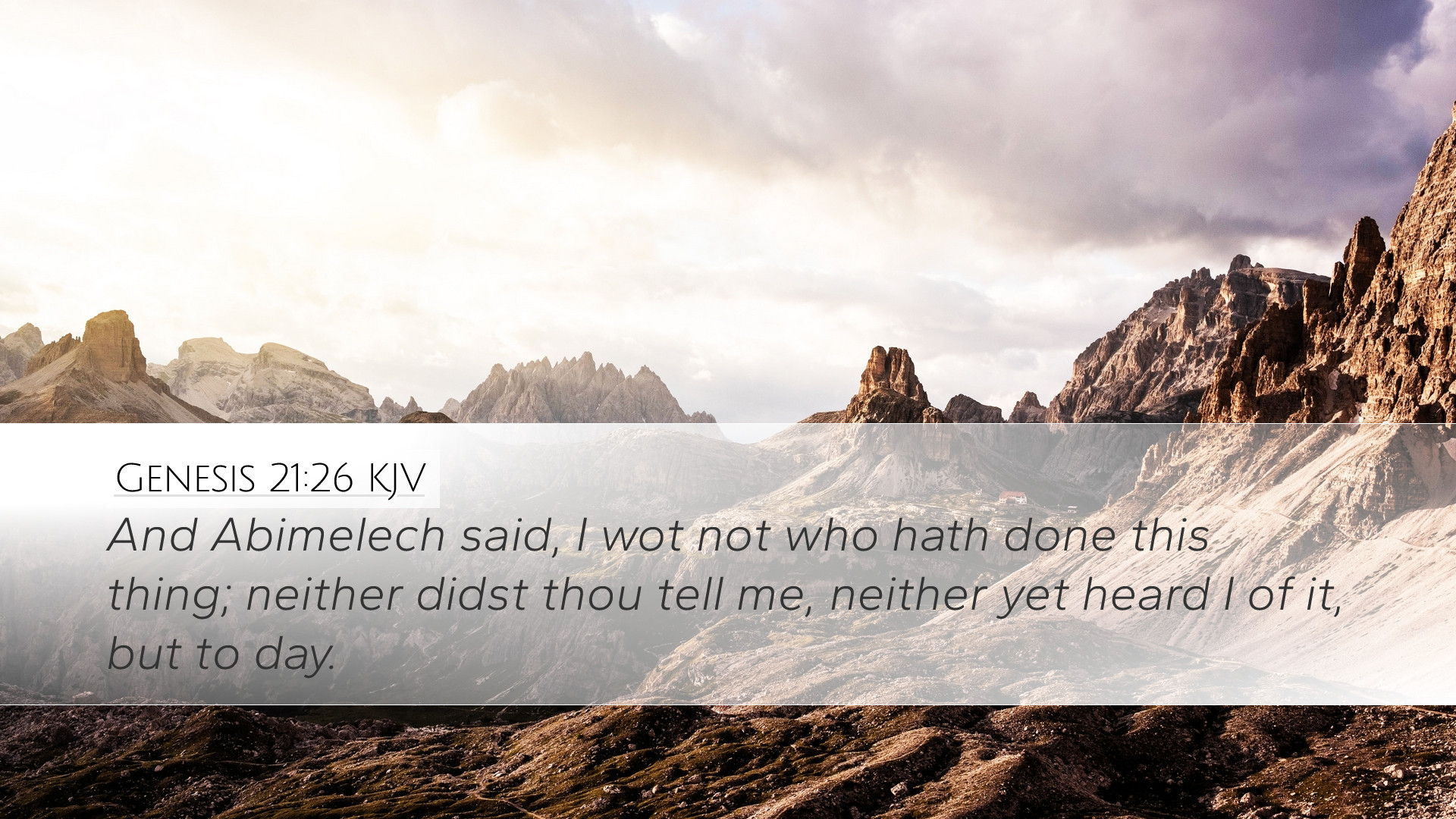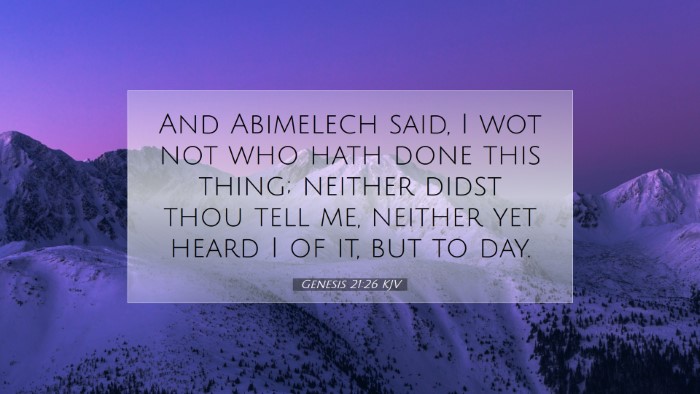Commentary on Genesis 21:26
Verse: "And Abimelech said, I wot not who hath done this thing: neither didst thou tell me, neither yet heard I of it, but to-day."
Introduction
Genesis 21:26 presents a significant moment in the narrative between Abraham and Abimelech, the king of Gerar. This verse encapsulates themes of conflict resolution, honesty, and the pursuit of peace.
Contextual Overview
Abimelech had previously interacted with Abraham and had been misled regarding Sarah's identity. This encounter follows the miraculous birth of Isaac and the subsequent expulsion of Hagar and Ishmael, revealing the continuing tensions and reconciliations in Abraham's life.
Commentary Insights
Historical and Cultural Background
Matthew Henry provides valuable perspectives on the customs of the time, noting the importance of treaties and oaths. The ancient Near Eastern culture placed a premium on integrity and the sanctity of agreements, and Abimelech's admission underscores the significance of trust in their interactions.
Abimelech's Admission
Abimelech’s statement, "I wot not who hath done this thing," reflects a leader’s integrity and desire to maintain goodwill. Albert Barnes emphasizes that this admission indicates Abimelech's lack of knowledge regarding any wrongdoing that may have occurred, showcasing his diplomatic approach.
Implications of Ignorance
The phrase "neither didst thou tell me" suggests a missed opportunity for open dialogue. Adam Clarke discusses the role of communication in resolving conflicts, indicating that clearer communication could have prevented misunderstandings.
Trust and Relationships
This verse also examines the nature of relationships built on trust. According to Henry, the integrity displayed by Abimelech provides a contrast to the previous deception by Abraham regarding Sarah’s identity. It serves as a reminder that relationships should prioritize honesty and transparency.
God’s Sovereignty
The events leading to this exchange highlight God’s involvement in the affairs of men. Barnes asserts that God guided these events to ensure His promises to Abraham and Sarah were fulfilled, despite human imperfections.
Theological Themes
Genesis 21:26 invites readers to consider several theological themes.
- Divine Providence: The verse resonates with God's providential care, steering relationships toward reconciliation.
- Human Responsibility: It highlights our responsibility to uphold truth and integrity within our interactions.
- Impact of Actions: Every action has consequences, and the need for restoration after wrongdoings emphasizes the importance of accountability.
Application for Today’s Readers
This narrative encourages readers—pastors, students, theologians, and scholars—to apply its lessons in their ministry and personal lives:
- Prioritize Communication: Encourage open dialogue within congregations, avoiding misunderstandings.
- Embrace Integrity: Model truthfulness in relationships, reflecting Christ's nature in all interactions.
- Seek Peace: Strive for peace and restoration when conflicts arise, following the example of Abraham and Abimelech.
Conclusion
Genesis 21:26 serves as a critical reminder of how integrity, openness, and God’s providence shape our relationships. Reflecting on this verse invites deeper understanding and commitment to living out the principles of honesty and reconciliation, vital for flourishing communities of faith.


